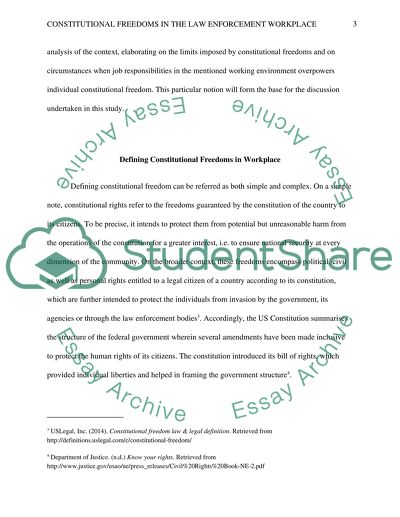Cite this document
(“Constitutional Freedoms in the Law Enforcement Workplace Essay”, n.d.)
Constitutional Freedoms in the Law Enforcement Workplace Essay. Retrieved from https://studentshare.org/law/1648990-constitutional-freedoms-in-the-law-enforcement-workplace
Constitutional Freedoms in the Law Enforcement Workplace Essay. Retrieved from https://studentshare.org/law/1648990-constitutional-freedoms-in-the-law-enforcement-workplace
(Constitutional Freedoms in the Law Enforcement Workplace Essay)
Constitutional Freedoms in the Law Enforcement Workplace Essay. https://studentshare.org/law/1648990-constitutional-freedoms-in-the-law-enforcement-workplace.
Constitutional Freedoms in the Law Enforcement Workplace Essay. https://studentshare.org/law/1648990-constitutional-freedoms-in-the-law-enforcement-workplace.
“Constitutional Freedoms in the Law Enforcement Workplace Essay”, n.d. https://studentshare.org/law/1648990-constitutional-freedoms-in-the-law-enforcement-workplace.


